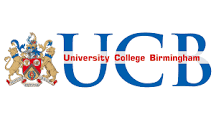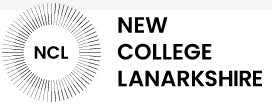The law affects all aspects of human endeavour and we can see the effects of law in disciplines such as arts and media, business, sciences, sports and entertainment. In almost everything we do, we are governed by and protected by law.

If you choose to study law, you are choosing a lively, vibrant subject that is always current and relevant. A strong legal system is the basis of every society.
The law affects all aspects of human endeavour and we can see the effects of law in disciplines such as arts and media, business, sciences, sports and entertainment. In almost everything we do, we are governed by and protected by law.
As individuals, we rely on the law to protect our rights as consumers, to regulate businesses and to make sure that our health and safety is safeguarded. As employees, the law makes sure that we are fairly treated and free from exploitation through rules on working time, paid holiday, equal pay and much more.
The business world could not exist without the safety net of contract law below it, ensuring that promises are kept and that those who suffer loss are compensated fairly. Many professionals (such as accountants) are required to study some law to understand their responsibilities. By studying this A-level in Law, you will develop an understanding of the legal system that will serve you well in any profession.
Course breakdown
To achieve your Law A-level, you must study the following topics, and also choose one of the optional modules:
The Nature of Law
Law and morals
Law and justice
Law and society
The English Legal System
How law is made and developed
The criminal process
The civil court process
Criminal Law
Elements of criminal liability
Fatal offences against the person
Non-fatal offences against the person
Property offences
Defences to crime
Law of Tort
Negligence (personal injury and damage to property)
Torts related to property
Defences
Remedies
Vicarious liability
Human Rights (optional)
The rules of Human Rights law
Protection of individual’s rights and freedoms
Exploration of specific rights and freedoms (including the right to a private and family life, freedom of expression and freedom of assembly and association)
The right to freedom of expression
Restrictions on human rights
Enforcement of human rights
Reform of human rights law in the UK
Contract Law (optional)
The formation of contracts
Contractual terms
Factors that can invalidate a contract
Ending a contract
Remedies
Entry requirements
Academic requirements
We ask for a minimum of five GCSE subjects at grade 5 or higher, including GCSE English Literature or Language and Maths.
Supporting documents required
School applicants will be required to provide a school report, which must include attendance. This will be assessed in conjunction with your qualifications and application during the confirmation of your place at University College Birmingham.
Guaranteed progression
Students who achieve 56 UCAS points or more from this qualification will automatically be guaranteed a place on a degree course at University College Birmingham. Some undergraduate courses require additional entry requirements, so applicants are advised to check entry requirements before applying.
History of University College Birmingham
With more than 7,500 students, University College Birmingham today is unrecognisable from the small Victorian classes where it all started.
Today, hospitality managers, aviation executives, dazzling hairdressers and makeup artists, educators, chefs, bakers, tourism industry experts, business leaders and creative entrepreneurs learn skills for life at a university hailed for its vocational training, academic achievements and cultural diversity.
We have invested £160 million in our campuses and facilities, including building McIntyre House and Moss House, since 2014. These ambitious projects represent a bold statement of intent beyond the dreams of Birmingham’s early educational pioneers.
here is, however, a common theme. Then, as now, cookery was of the moment; and students and employers in the 21st century owe a debt of gratitude to municipal reformers such as Joseph Chamberlain who backed the cause of cookery at UCB’s forebear, Birmingham Municipal Technical School, in the 19th century.
A report in the Birmingham Daily Post of November 7, 1874 recalls a meeting of the Birmingham School Board, presided over by the then chairman, one J Chamberlain.
The Board was told that the Education and School Management Committee had considered the “advisability of introducing instruction in practical cookery and household work as part of the ordinary school course.”
The committee suggested “experimental buildings” should be built at two schools to replicate the “ordinary size and ordinary character found in the cottages of working people.”
There should be “no special appliances for cooking” and the girls would be taught to cook with “ordinary utensils, at the ordinary fires, the ordinary food of the class to which they belonged.” It was a visionary, albeit no frills, educational development.
The fledgling culinary arts were sparking wider interest. By the 1880s, the Midland School of Cookery occupied a “large apartment” with a larder, scullery and a gas stove at the Midland Institute in Birmingham.
Up to 100 women and professional cooks attended lessons in “high-class” cookery five mornings a week. By 1891, cookery classes were delivered at the Birmingham and Midland School of Cookery at 117 Colmore Row, focusing on “high-class cookery, cottage cookery and vegetarian cookery.”
Archives suggest domestic cookery classes were taught throughout the First World War at the Municipal Technical School, which became the Central Technical College in 1927.
As the institution added new courses and changed its focus, there were numerous further name changes including, in the 1950s, the College of Food and Technology, featuring a department of bakery and domestic science. Just a year later, it was renamed again and became the Birmingham College of Food and Domestic Arts.
The College, which had operated from nine city and suburban schools, came under one roof in 1968 when the Duke of Edinburgh opened a new £1.5 million building on Summer Row.
The building was designed to house up to 1,000 students and included a hostel for 57 female students boarding on a dinner, bed and breakfast basis.
In 2002, the institution transferred to the higher education sector, providing both outstanding higher and further education courses with a strong vocational focus.
University College Birmingham was officially born in November 2007 when the Privy Council granted taught degree awarding powers.
Full university status followed in December 2012 as part of moves to diversify the university sector and improve student choice.
With many of its degrees accredited by the University of Birmingham, UCB has undergone a remarkable transformation and values it culturally diverse, outward facing global perspective.
It is a truly international university that delivers specialist courses to 900 overseas students from 65 countries as diverse as China, Pakistan and Saudi Arabia. UCB has amassed an impressive array of accolades and awards over the years.
The lion’s share of recruitment is now in higher education, comprising 70% of UCB’s intake compared with 30% on further education courses. Students can study everything from certificates and diplomas to degrees and postgraduate qualifications.
However, the defining ethos of the institution has remained a constant – to give students, regardless of their background, the opportunity to succeed and to offer, in the motto of the University’s coat of arms, “service before self.
Mission
University College Birmingham's mission is likely to focus on the following aspects:
Professional and Vocational Education UCB is committed to delivering practical and industry-relevant education that equips students with the skills and knowledge needed to excel in their careers.
Industry Engagement: The university aims to maintain strong partnerships with industries, businesses, and employers to ensure that its programs are aligned with current market needs and trends.
Student-Centered Approach: UCB strives to provide a supportive and student-centered learning environment that fosters personal and professional development.
Innovation and Excellence: The institution likely aspires to continually innovate its programs and teaching methods, while maintaining high standards of academic excellence.
Vision
University College Birmingham's vision might encompass the following goals:
Leading Applied Education: UCB likely envisions itself as a leading institution in providing applied education, producing graduates who are well-prepared for the challenges of the modern workforce.
Global Recognition: The university may aim to achieve recognition on a national and international level for its contributions to vocational education and its impact on various industries.
Graduate Success: UCB likely aims for its graduates to be highly sought-after professionals who make meaningful contributions to their fields and communities.
Innovative Learning Environment: The institution might envision fostering a dynamic and innovative learning environment that utilizes the latest teaching methods and technologies.
Community Engagement: UCB may seek to actively engage with the local community, businesses, and organizations to create mutually beneficial partnerships and initiatives.

This is an entry-level, introductory into the world of Law and Criminology. You will cover various aspects of Law including Scots Law, Property Law and more. This course provides an insight into the varied aspects of the legal sector and the many career options available.

Students will study the following topics: the English legal system, law making, criminal law, law of tort, law of contract and the nature of law, which could highlight areas such as law and morality, law and technology and law and society. They will all be assessed by three examinations throughout ...

Students will study the following topics: the English legal system, law making, criminal law, law of tort, law of contract and the nature of law, which could highlight areas such as law and morality, law and technology and law and society. They will all be assessed by three examinations throughout ...

Students will study the following topics: the English legal system, law making, criminal law, law of tort, law of contract and the nature of law, which could highlight areas such as law and morality, law and technology and law and society. They will all be assessed by three examinations throughout ...

From prosecuting criminal offenders to remedying civil disputes, our legal system is a complex, ever-changing cornerstone of the society we live in. Laws govern almost every part of our lives, and this course provides a great introduction into some important legal rules and principles.
© 2025 coursetakers.com All Rights Reserved. Terms and Conditions of use | Privacy Policy